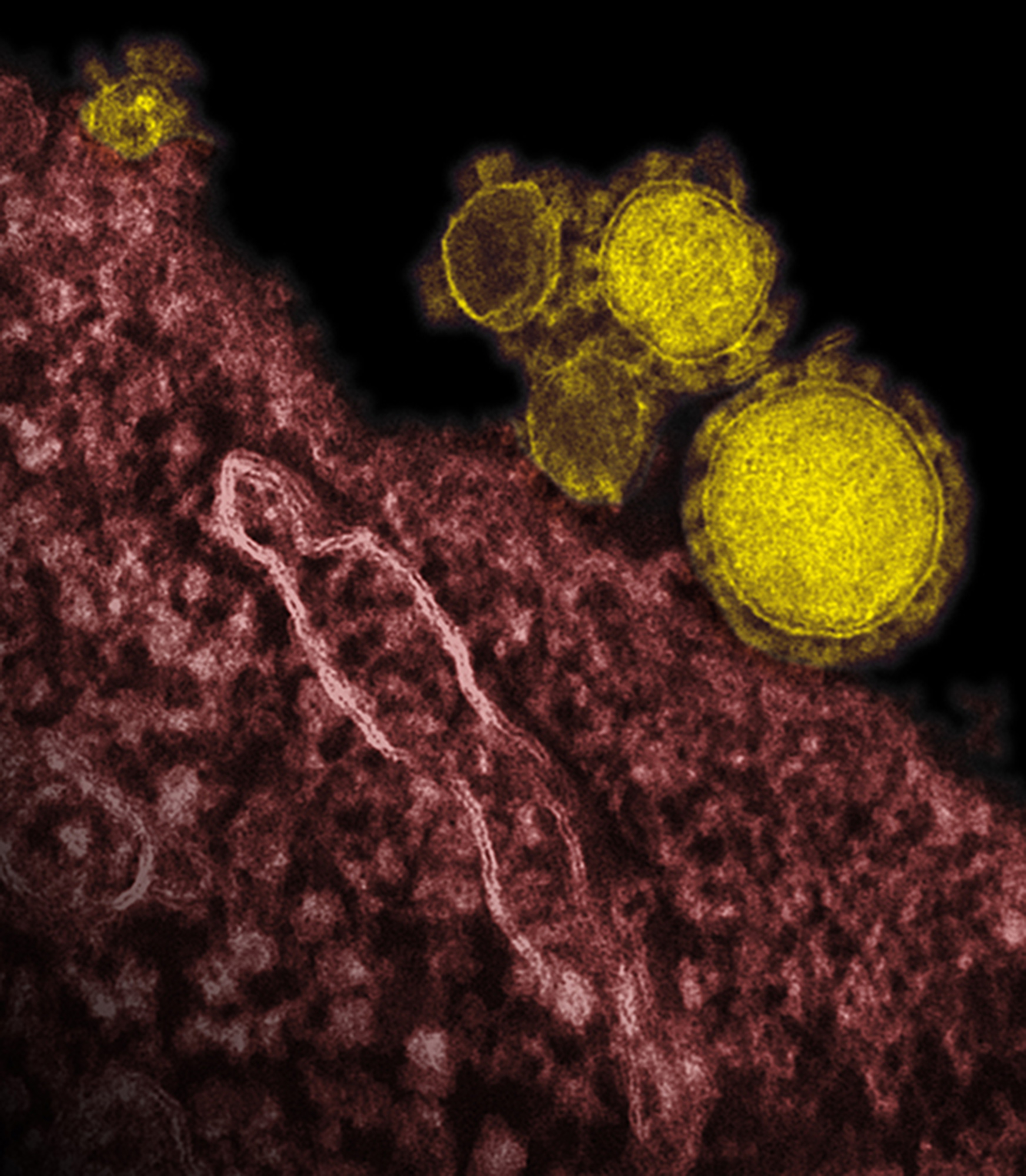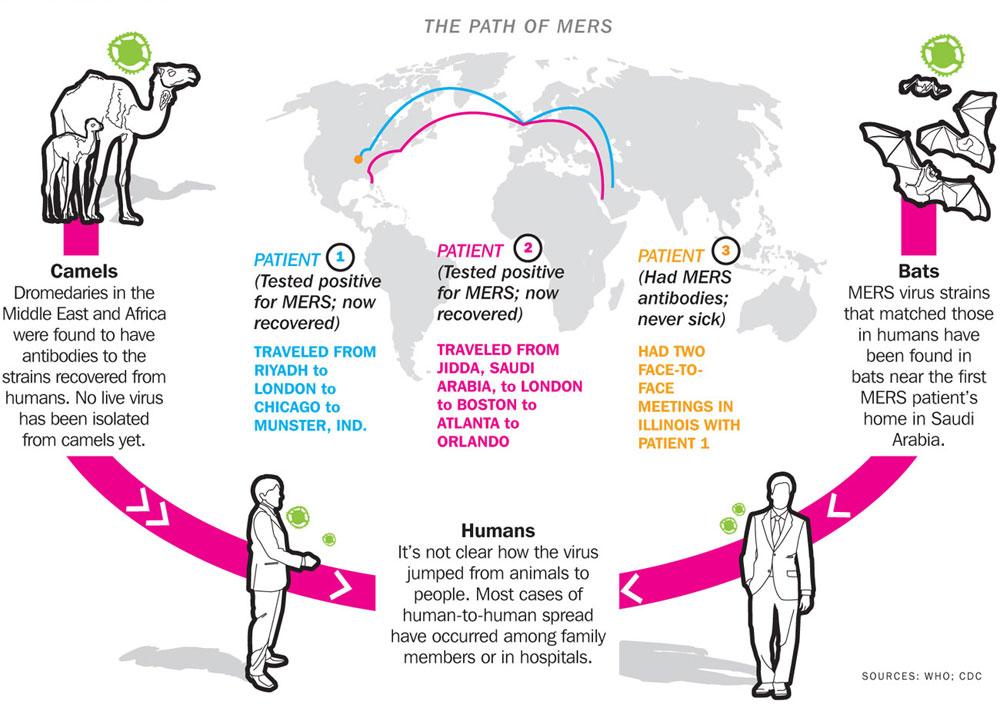
Updated 3 p.m. ET
Federal and state health officials confirmed a second U.S. case of the deadly Middle East Respiratory Syndrome on Monday, less than two weeks after the country’s first case appeared in an Indiana hospital.
Officials from the Centers for Disease Control and Prevention and the Florida Department of Health told reporters the newly infected patient is a health care provider who lives and works in Saudi Arabia. The person flew from Jeddah to London, and then to Boston. From there, the patient traveled to Atlanta and then Orlando to visit family members, officials said.
The person began feeling unwell during the flight from Jeddah to London—suffering from symptoms like a fever, chills and a slight cough—and then continued to feel ill on subsequent flights, officials said. The person went to the emergency room of a hospital in Orange County on May 8 and was admitted the same day. The patient was then placed in isolation, and remains in stable condition.
John Armstrong, Florida’s state surgeon general and secretary of health, said the patient’s family was “staying home” at the moment and that the hospital would release more information later Monday.
Officials said they are reaching out to anyone who may have had close contact with the patient before the person entered the hospital. That includes more than 500 people who were on the patient’s last few flights in the U.S.
On desktop, roll over this graphic to get a closer look; on mobile, click to zoom.
The first U.S. case of MERS appeared in Indiana in late April after having popped up in more than a dozen countries around the world. That patient is currently in good condition at Community Hospital in northern Munster and is expected to be released in the near future. The unnamed victim is a hospital worker in Saudi Arabia, home to about 450 lab-confirmed cases and 118 deaths.
The patient in Indiana, who was on a planned visit to see family, was placed in full isolation and all staff members who had contact with him previously have tested negative for the disease. Health officials have been contacting people who might have come into contact with the patient on public transport.
MERS is in the same virus family as Severe Acute Respiratory Syndrome (SARS), which killed more than 700 people about a decade ago. It has no vaccine or treatment, but researchers believe it may have originated from bats or camels. Human transmission has so far largely occurred between people with close contact with those infected, especially in health care settings. To date, there have been at least 538 confirmed cases and 145 deaths.
More Must-Reads from TIME
- Cybersecurity Experts Are Sounding the Alarm on DOGE
- Meet the 2025 Women of the Year
- The Harsh Truth About Disability Inclusion
- Why Do More Young Adults Have Cancer?
- Colman Domingo Leads With Radical Love
- How to Get Better at Doing Things Alone
- Michelle Zauner Stares Down the Darkness
Contact us at letters@time.com
